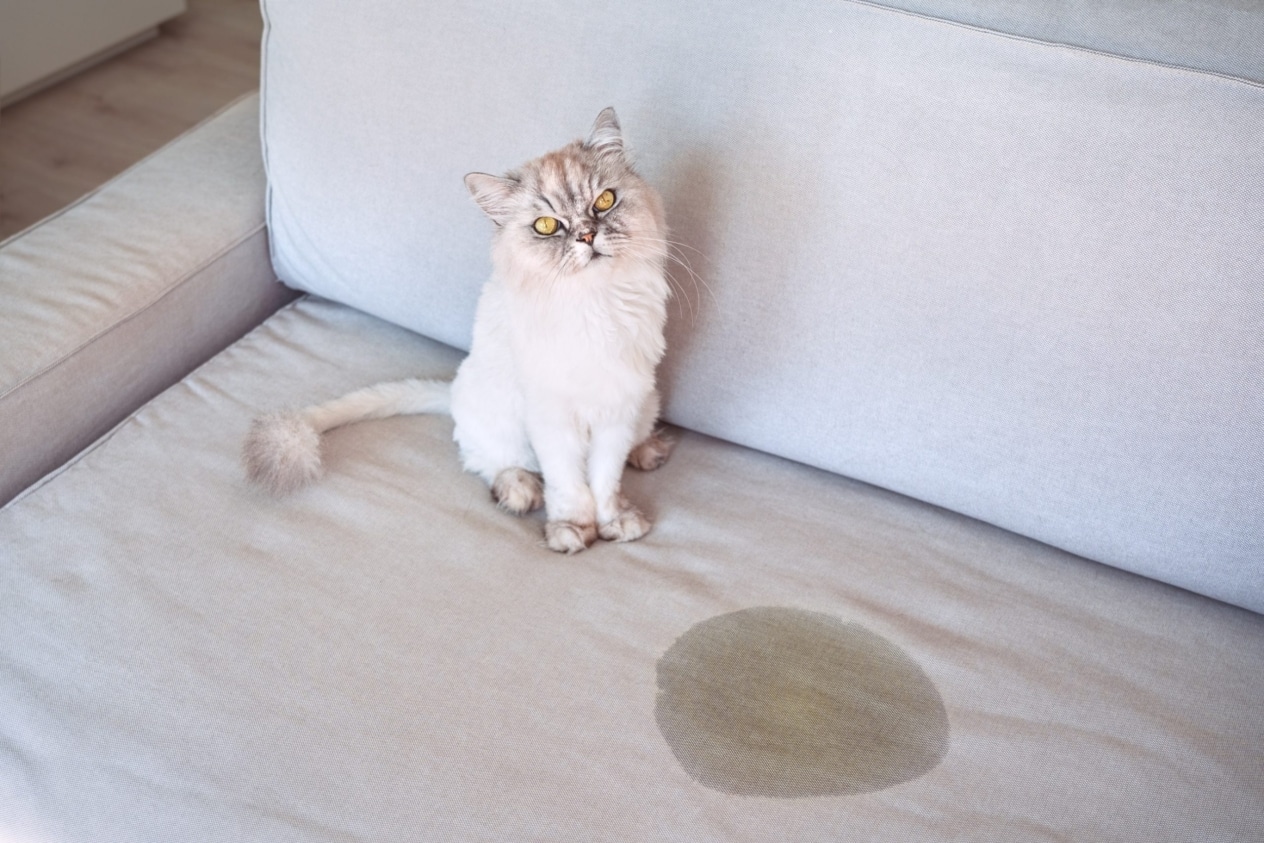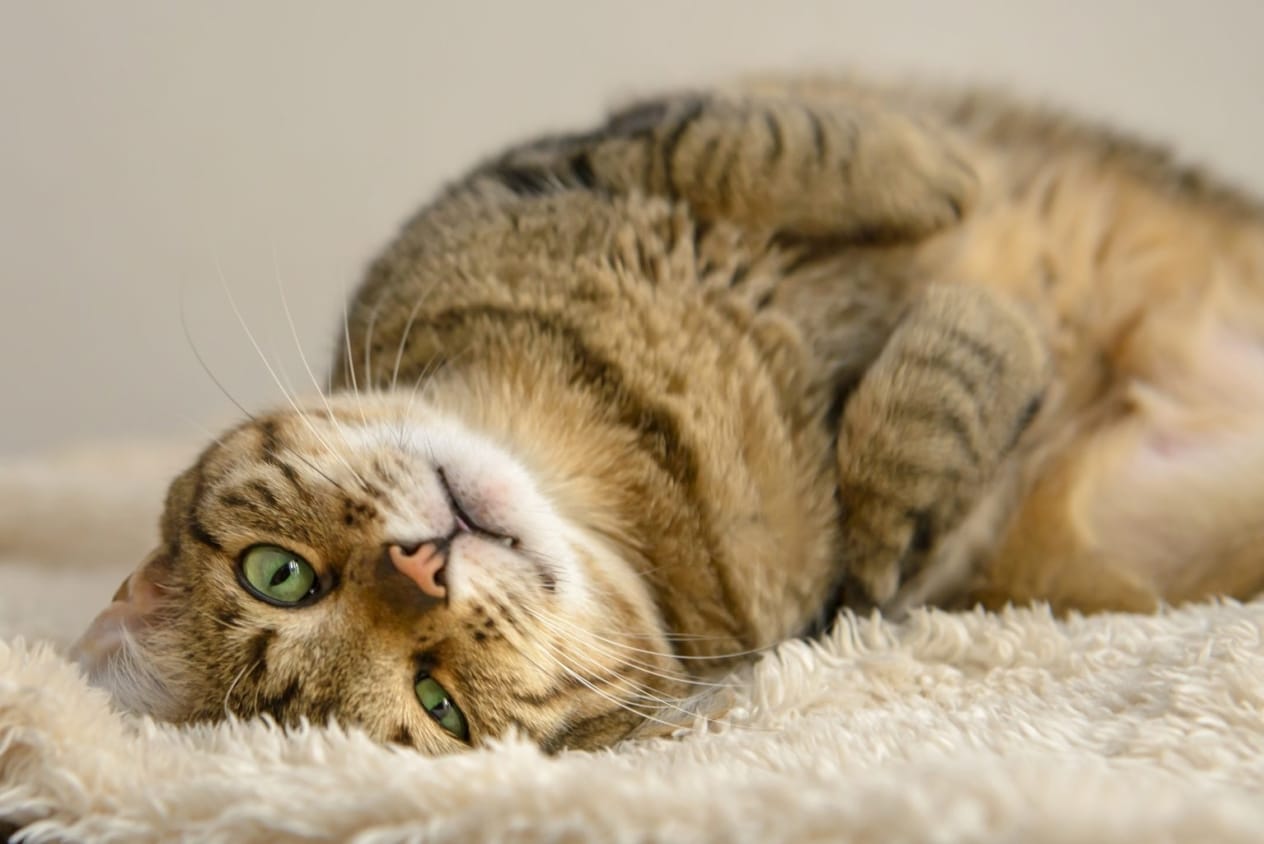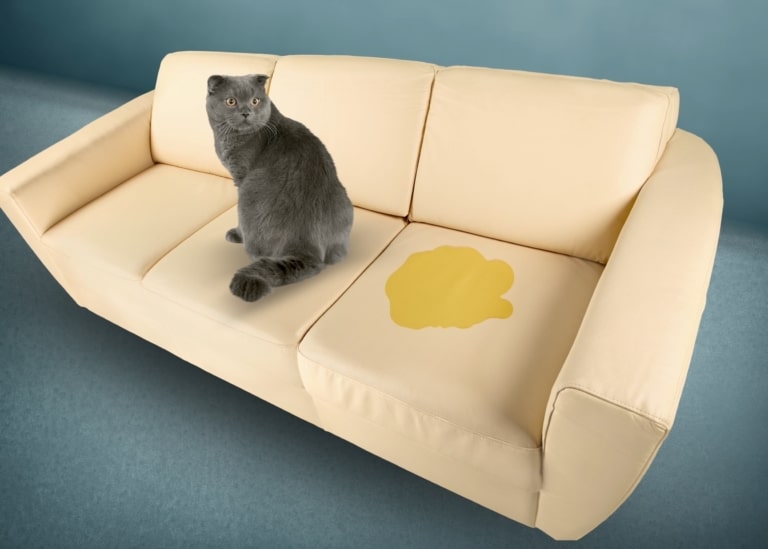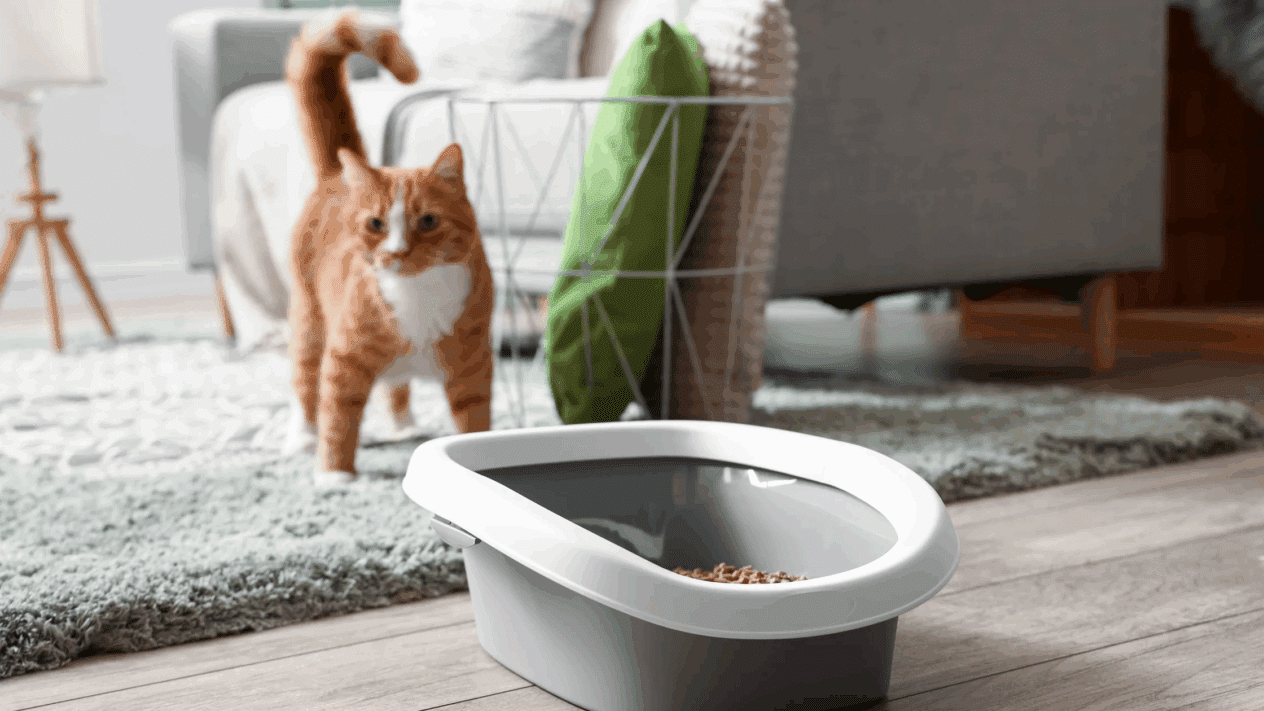
When your beloved kitty suddenly starts urinating on the couch, it can shock even the most patient owner. Especially if there were no problems with his toilet habits before. In fact, this is always a signal – either of physical discomfort or psychological instability. If you’ve already ruled out health problems, let’s figure out what else could be the cause and how to remedy the situation.
Psychological causes: stress, resentment or need for security
Cats are very sensitive to change. Even a slight rearrangement of furniture or the appearance of a new odor in the house (new laundry detergent, candle scent or deodorant) can cause anxiety in the animal. If there is another cat, dog, child or guest in the house, the pet may feel displaced. The couch in this case is a territory saturated with the owner’s odors and therefore seems like a safe place. Urine is her way of “regaining control” and being “soothed” by the odor of her own pheromones.
Also, do not underestimate such a concept as resentment: if the cat is scolded unfairly, chased away or neglected, it may react with demonstrative behavior. In its view, this is a dialog. It is as if he says: “Look at me. I feel bad. I’m confused. I’m not sure of your love.”
Problems with the toilet: the litter box, the filler or its location
Even if it seems like everything is the same as before – the cat may have changed its attitude toward the litter box. Whether it’s too small, the smell, the shape, a new litter, or even how often it’s cleaned – it’s all important. If you have changed something slightly (for example, bought a different brand of litter), the animal may refuse to use the litter box. Sometimes even an old habit to a particular texture or odor plays a role. Cats are creatures of habit, so any changes are perceived acutely. Pay attention to the location of the litter box: it should be in a quiet, isolated place, away from bowls of food. If it is noisy, people pass by or there are strong odors – this may be a reason for refusal.
How to fix the situation?
The very first thing is to never yell or punish the cat. This will only make the problem worse. Clean the sofa with a special enzyme product that will completely neutralize the smell. The human nose may not smell the residue, but the cat will hear it – and will keep coming back.
Try temporarily blocking access to the couch, especially when you’re not home. Make the litter tray as attractive as possible: clean, large, with a comfortable litter, place it in more than one location if you can. In some cases, it may be worth placing a second litter tray – for example, near the “problem area” to help move the action from the couch to an acceptable location.

If you suspect an emotional cause – give more attention. Play, talk, pet her. The cat needs to feel loved and protected by you. Sometimes a pheromone spray or natural calming agents based on valerian or catnip can help.
When a cat starts walking on the couch, it’s always a symptom. If physiology is normal, look for psychological or household causes. Patience, observation and gentle behavioral readjustment will help bring harmony back into your home.










